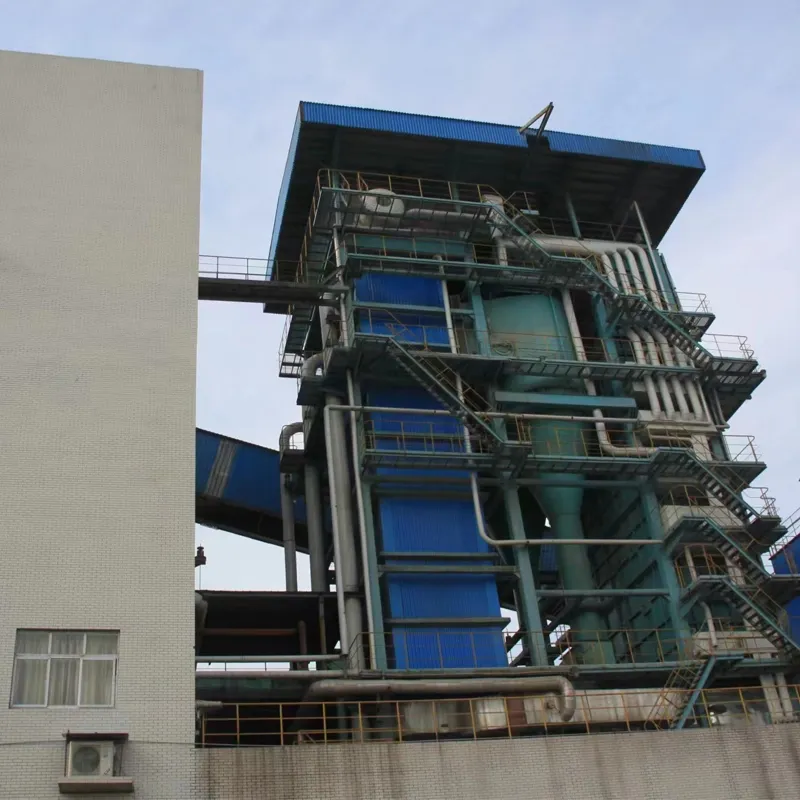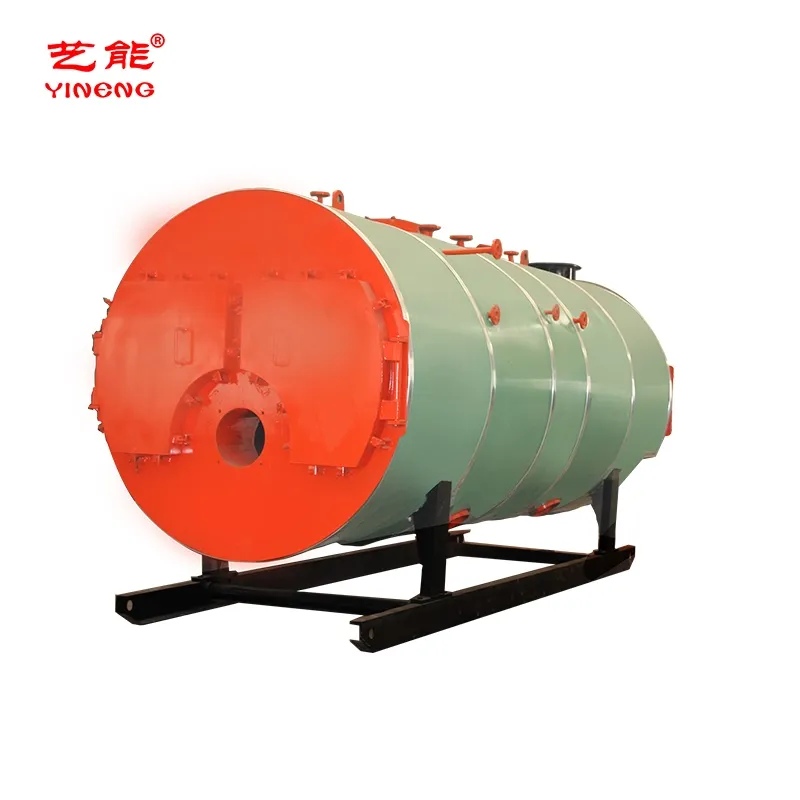High-Efficiency Biomass Hot Water Boilers Eco-Friendly & Cost-Effective
- The Growing Demand for Biomass Heating Solutions
- Engineering Excellence in Thermal Efficiency
- Comparing Industry-Leading Boiler Manufacturers
- Custom Design Solutions for Specialized Applications
- Industrial Implementation Success Stories
- Economic Considerations for Energy Investments
- Optimizing Performance with Modern Water Boiler Technology

(water boiler)
The Growing Demand for Biomass Heating Solutions
Global industrial facilities are increasingly transitioning to biomass heating systems, with the European Biomass Association reporting a 26% year-over-year growth in commercial installations. This surge directly corresponds to tightening emissions regulations across 78 countries worldwide, where traditional fossil fuel boilers face operational restrictions. Biomass hot water boiler
products address these regulatory challenges while providing stable thermal output ranging from 200kW to 20MW capacity.
Modern industrial biomass systems demonstrate remarkable environmental metrics: a typical 500kW unit reduces CO2 emissions by approximately 320 metric tons annually compared to equivalent gas-fired systems. Leading manufacturing facilities in Scandinavia have achieved up to 95% thermal efficiency through advanced combustion chamber designs and proprietary heat recovery systems. These technological advances position biomass solutions as both ecologically responsible and economically viable alternatives.
Engineering Excellence in Thermal Efficiency
Cutting-edge boiler designs incorporate stainless steel condensing economizers that extract residual heat from exhaust gases, boosting efficiency by 9-12% compared to conventional models. Patented multi-stage combustion chambers ensure consistent 89-92% thermal efficiency even with variable biomass fuel quality. Automated cleaning systems maintain heat transfer surfaces at optimal performance levels, reducing maintenance downtime by approximately 35%.
Advanced control systems continuously monitor 18+ operational parameters including oxygen levels, flue gas temperatures, and pressure differentials. These integrated systems automatically adjust combustion air ratios within a 0.5% tolerance range, optimizing efficiency across all load conditions. Remote diagnostics capabilities allow engineers to troubleshoot 76% of operational issues without physical site visits, significantly reducing service response times.
Comparing Industry-Leading Boiler Manufacturers
| Manufacturer | Thermal Efficiency | NOx Emissions (mg/Nm³) | Pressure Range (Bar) | Maintenance Interval | Factory Certification |
|---|---|---|---|---|---|
| ThermoGen Industries | 92.4% | 86 | 4-16 | 1,800 hrs | ISO 9001:2015 |
| BioHeat Systems | 90.1% | 95 | 3-12 | 1,500 hrs | ASME Section IV |
| EcoTherm Solutions | 89.7% | 110 | 5-18 | 2,200 hrs | PED 2014/68/EU |
Comprehensive analysis reveals that premium models from established biomass hot water boiler factories demonstrate significantly longer operational lifespans - averaging 14-17 years versus 9-11 years for entry-level alternatives. Performance variances primarily stem from combustion chamber materials (grade 316L stainless steel outperforms standard carbon steel by 40% in corrosion resistance) and control system sophistication.
Custom Design Solutions for Specialized Applications
Leading manufacturers develop tailored configurations addressing industry-specific thermal requirements. Food processing plants utilize specialized 304-grade stainless steel heat exchangers that withstand frequent CIP (Clean-in-Place) sterilization cycles. For hazardous environments, facilities incorporate ATEX-certified components meeting Directive 2014/34/EU explosive atmosphere standards.
Customization options extend beyond materials to functional specifications:
- Turbocharged combustion systems for high-altitude installations (>2000m)
- Co-firing configurations accommodating 70:30 biomass-to-fossil fuel ratios
- Output stabilization systems maintaining ±2°C tolerances in pharmaceutical processes
- Emergency steam injection maintaining thermal output during fuel transitions
Industrial Implementation Success Stories
Nottingham Textiles implemented a 1.2MW biomass system achieving 63% reduced operating expenses and €142,000 annual savings. Their custom-designed solution features automated fuel blending technology that accommodates three biomass types while maintaining constant 88°C output temperatures critical to dyeing processes. The installation recouped its initial investment within 3.2 years through energy savings and government sustainability incentives.
In Canada's forestry sector, a timber processing plant integrated waste wood into their thermal operations using a 4.5MW hot water boiler. This solution processes 15 tonnes/hour of bark and sawmill residue while eliminating natural gas consumption completely. Remote telemetry systems track performance metrics continuously, with data showing 93% availability rates since commissioning 27 months ago.
Economic Considerations for Energy Investments
Detailed financial analysis indicates biomass hot water boiler pricelist entries range from €45,000 for 300kW compact units to €380,000 for industrial 2MW configurations with advanced emission controls. A comprehensive ROI calculation framework must account for regional biomass fuel costs, projected maintenance expenses, and available sustainability subsidies which can reduce capital expenditures by 15-30% in compliant regions.
Operating expenditure benchmarks based on 2,000 annual operational hours:
| Cost Factor | Traditional Gas Boiler | Biomass Alternative |
|---|---|---|
| Fuel Expenses | €16,200 | €9,450 |
| Emissions Compliance | €3,800 | €450 |
| Maintenance Costs | €2,100 | €3,300 |
| Total Annual Cost | €22,100 | €13,200 |
Optimizing Performance with Modern Water Boiler Technology
Operational excellence requires precise combustion management systems that continuously adapt to variable biomass fuel properties. Top-tier units maintain ±2% oxygen levels in exhaust gases through PID-controlled air dampers. Automated slag management prevents chamber deposits with sequential pneumatic hammering cycles activated every 45 minutes of operation.
Advanced monitoring platforms track over 2,500 operational hours through IoT-connected sensors, building detailed performance profiles that identify optimization opportunities. Historical data from 37 installations demonstrates that properly maintained biomass hot water boiler products achieve uptime exceeding 91% over 10-year operational periods. This technological reliability enables industries to meet sustainability targets while ensuring uninterrupted thermal energy supply.

(water boiler)
FAQS on water boiler
Q: What does a biomass hot water boiler pricelist include?
A: It covers model prices based on capacity, efficiency, and fuel type. Lists optional features and bulk discounts. Custom quotes are available for specific needs.
Q: How to identify a reputable biomass hot water boiler factory?
A: Look for ISO-certified factories with transparent manufacturing processes. Check for client testimonials and energy efficiency standards. Direct visits ensure quality compliance.
Q: What are key product features of biomass hot water boilers?
A: They feature high thermal efficiency up to 95% and low emissions. Automatic feeding systems and smart controls enhance usability. Durable materials ensure long-term reliability.
Q: What factors affect biomass hot water boiler prices?
A: Prices vary by boiler size, technology level, and material quality. Installation costs and regional fuel availability impact overall expenses. Seasonal demand may cause fluctuations.
Q: Why choose biomass hot water boilers over fossil fuel alternatives?
A: They use renewable biomass, reducing carbon footprints by 70-90%. Lower fuel costs offer significant operational savings. Government incentives often support eco-friendly adoption.
-
Top Electric Steam Boiler Manufacturers | Industrial Steam SolutionsNewsJul.26,2025
-
Top Electric Steam Boiler Manufacturers – Reliable Industrial SolutionsNewsJul.25,2025
-
Top Electric Steam Boiler Manufacturers – Reliable Industrial SolutionsNewsJul.24,2025
-
Top Electric Steam Boiler Manufacturers – High Efficiency & ReliabilityNewsJul.23,2025
-
Best China Steam Boiler Price for Efficient Industrial HeatingNewsJul.22,2025
-
Top Electric Steam Boiler Manufacturers - High-EfficiencyNewsJul.21,2025

